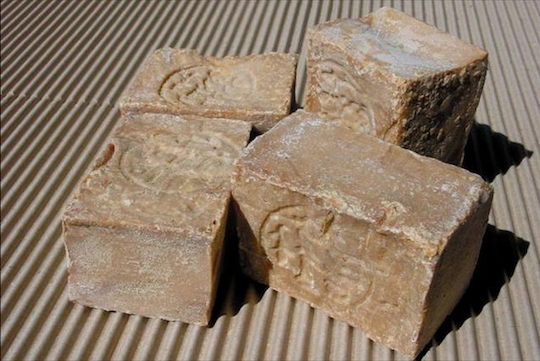Like other great inventions, such as the wheel, literature, legal codes, the plow, the calendar or the sexagesimal system, the use of olive oil for the creation of soap is the result of the rich culture lived in Mesopotamia in ancient times.
In the year 2,800 BC, which is the time the Sumerians ruled over Mesopotamia, the first evidence of a substance similar to soap was discovered.
In that time, the precursor of the soap was made by mixing animal fats and extra virgin olive oil with wood ash and water. The main use of this product was for wool cleaning, since they also invented the textile industry. Similarly, they were used by the Sumerian priests in purifications and other sacred rites. In later years, and with more updated versions, only extra virgin olive oil was used, eliminating animal fats. This was used for the treatment of skin diseases.
The Syrian city of Aleppo, thanks to its tradition of making high-quality EVOO soaps since ancient times (as a legacy of Mesopotamian culture), helped create a thriving industry, which fostered and helped to consolidate the well-known silk route, which was used for its expansion and the commercialization of its soaps.
The EVOO soap was a product with many applications in this age, as can be seen from several Mesopotamian tablets whose pictorial cuneiform writing reflects several methods for manufacturing it. These techniques were also perfected by the Egyptians, who added alkaline salts and made new uses for it.
Later on, the Roman culture also produced this product and applied new uses to it. Mainly it was used as a waxy substance for hair. It was also used by doctors and surgeons to clean impurities from the body.
From the eleventh century AD, Spain, became one of the main manufacturers of EVOO soap under its Muslim government, with the most famous of its time being the one manufactured in Castille.

